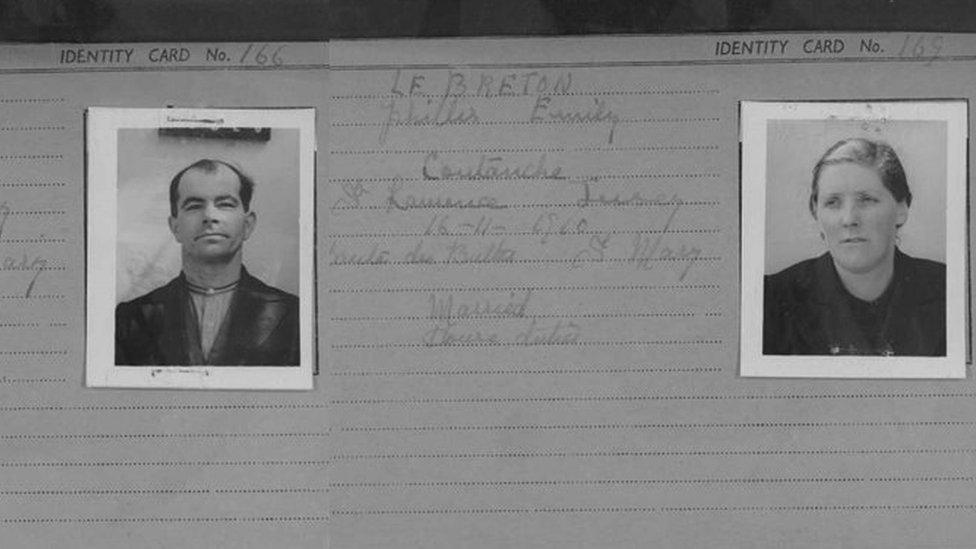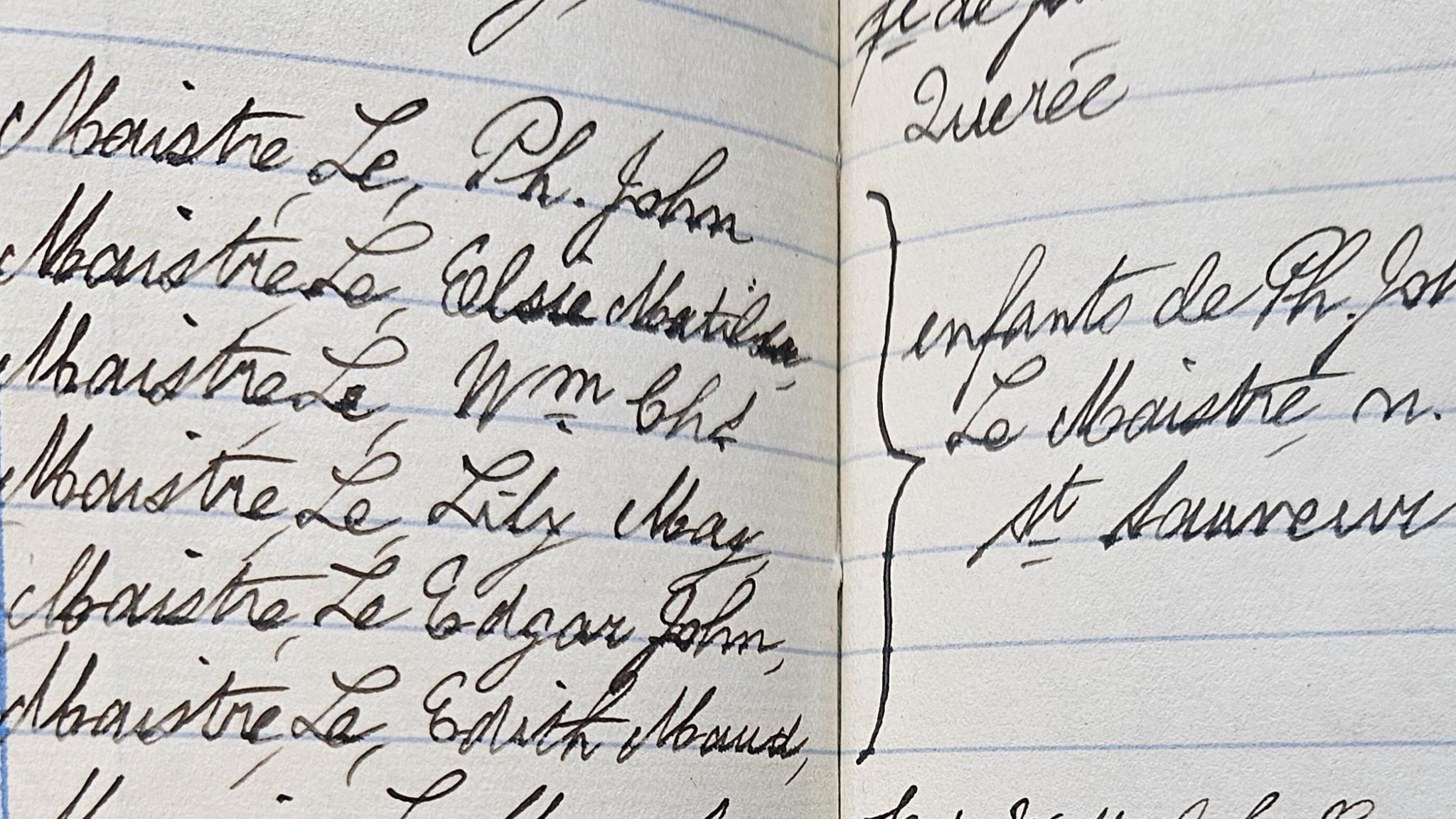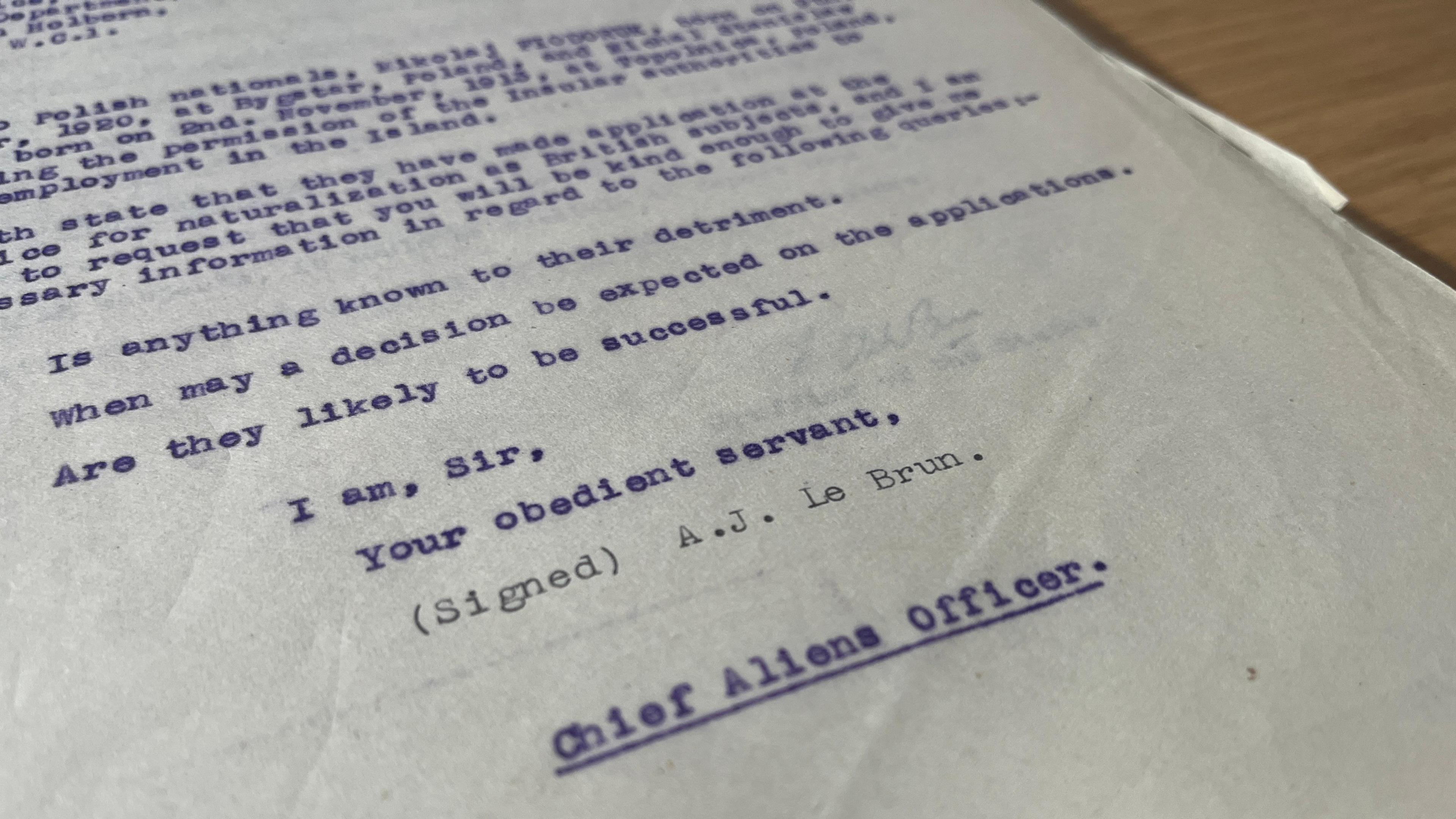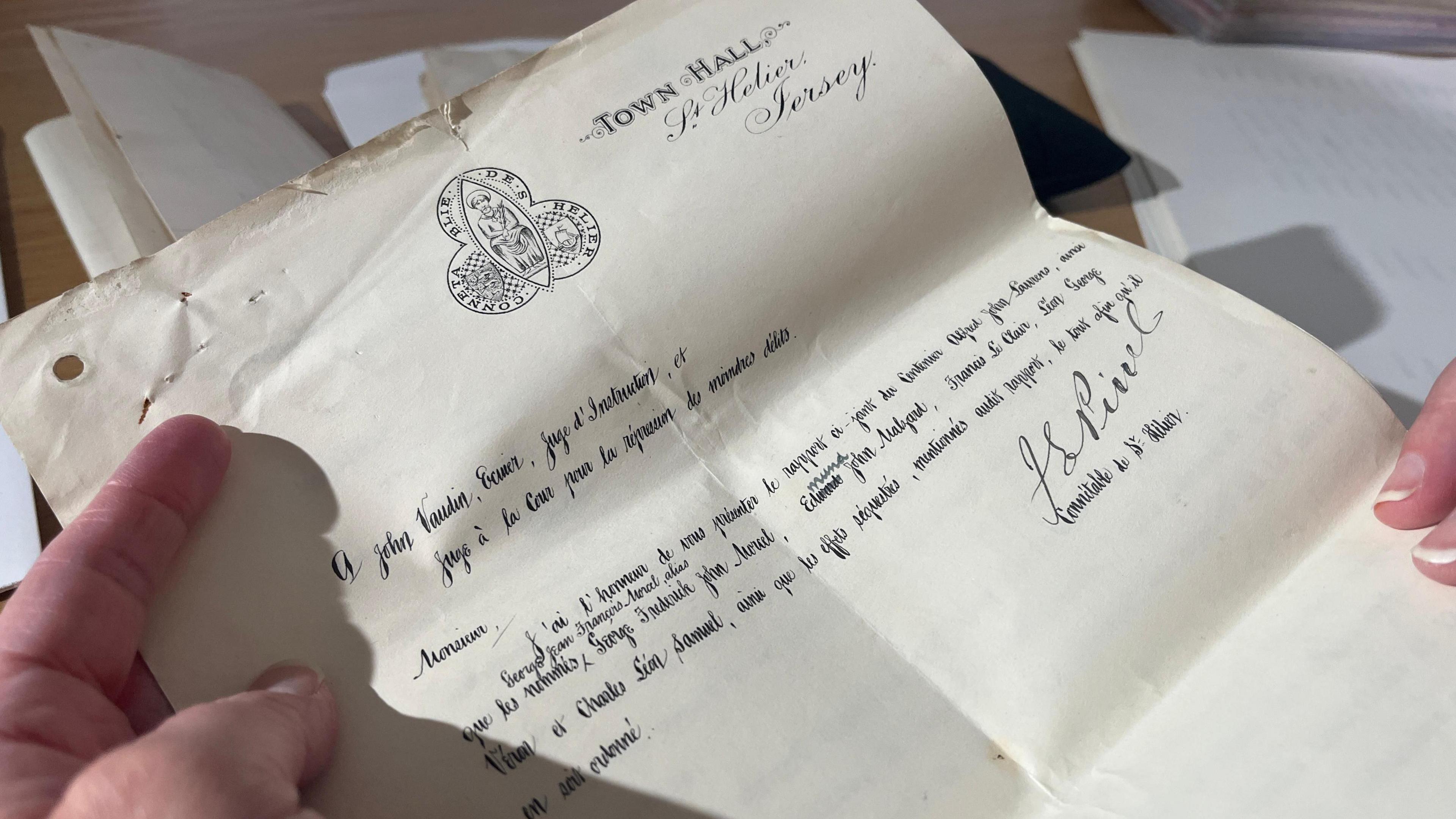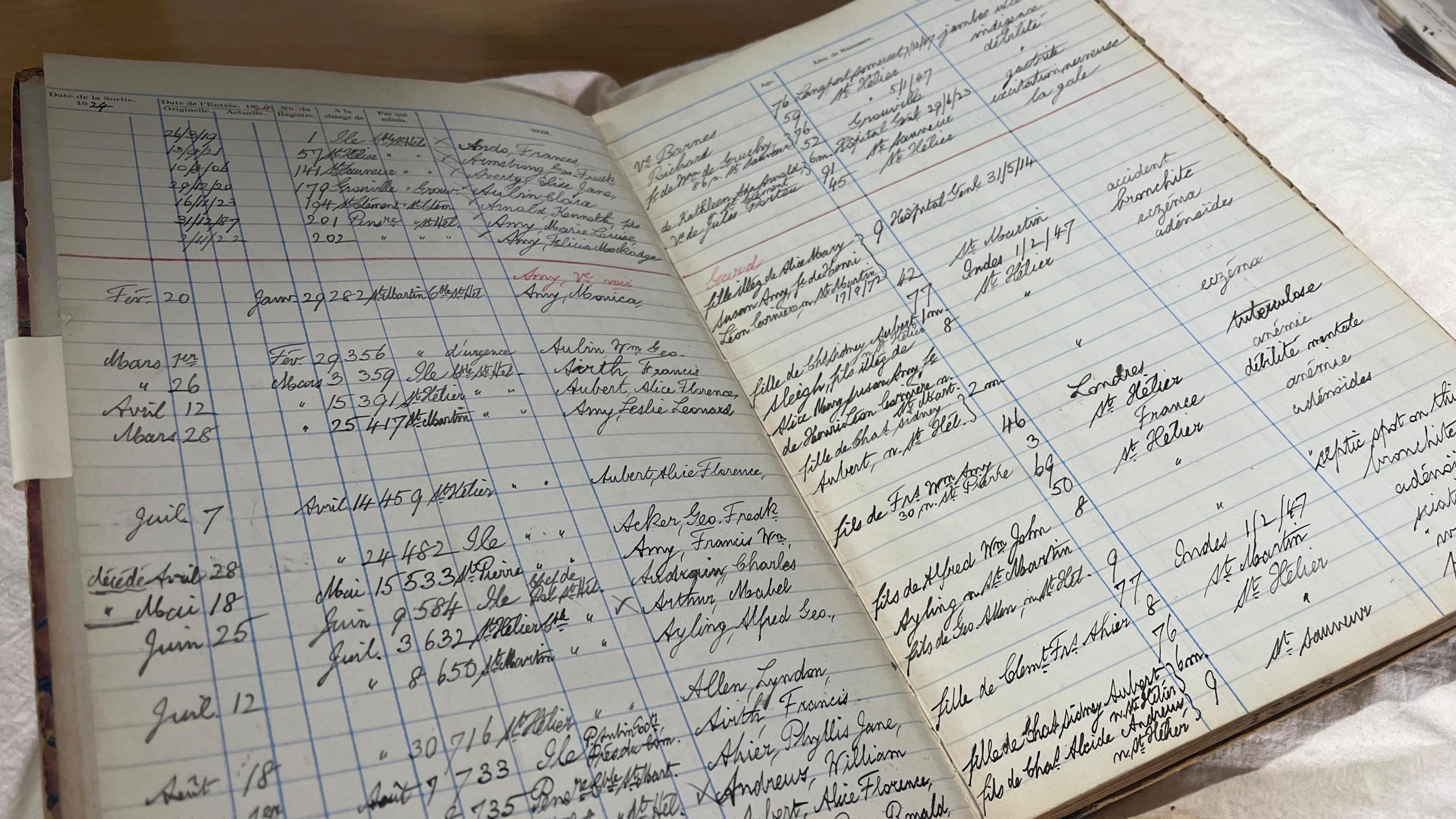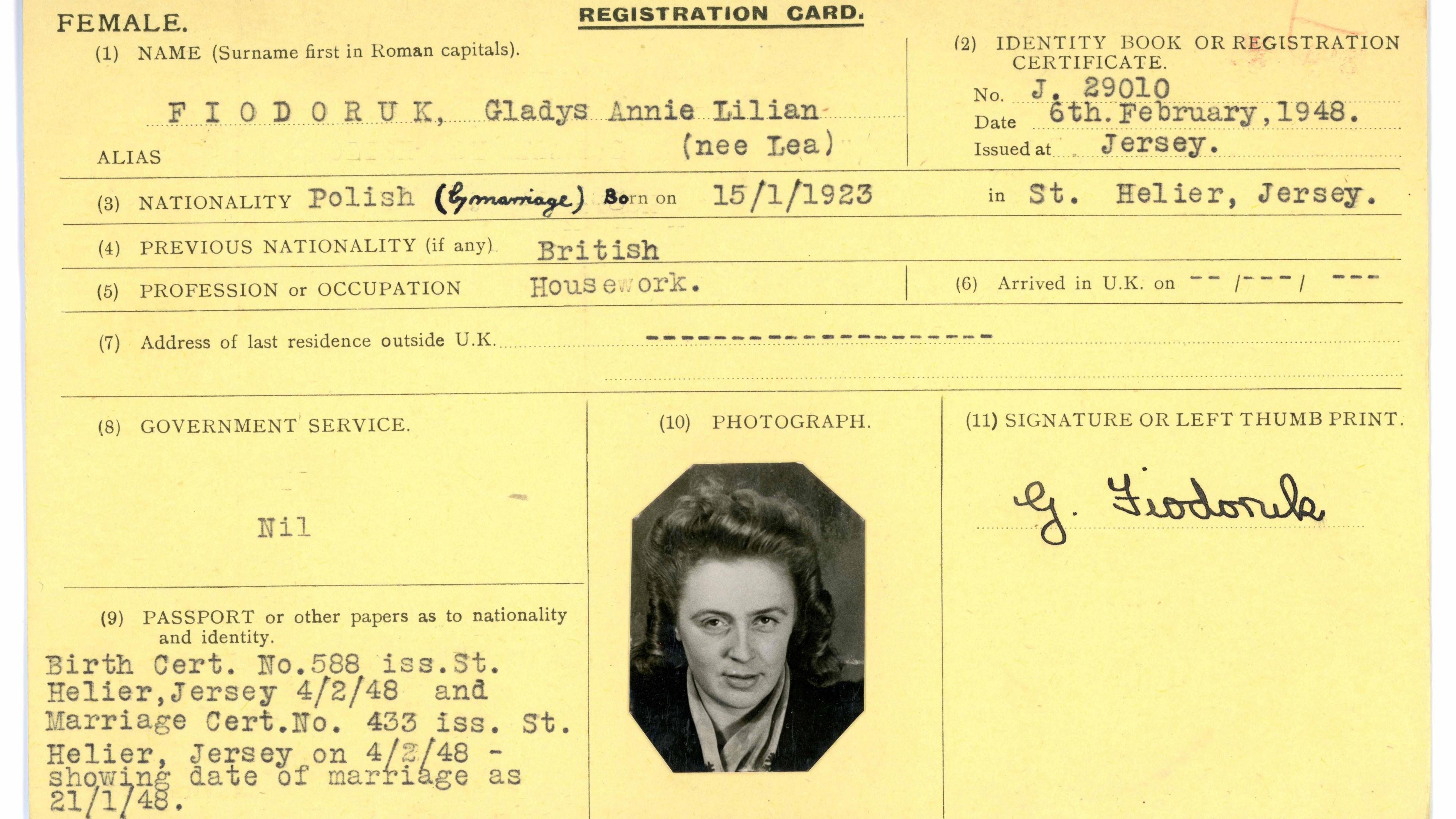Heritage releases historical Jersey records
- Image source, Jersey Heritage
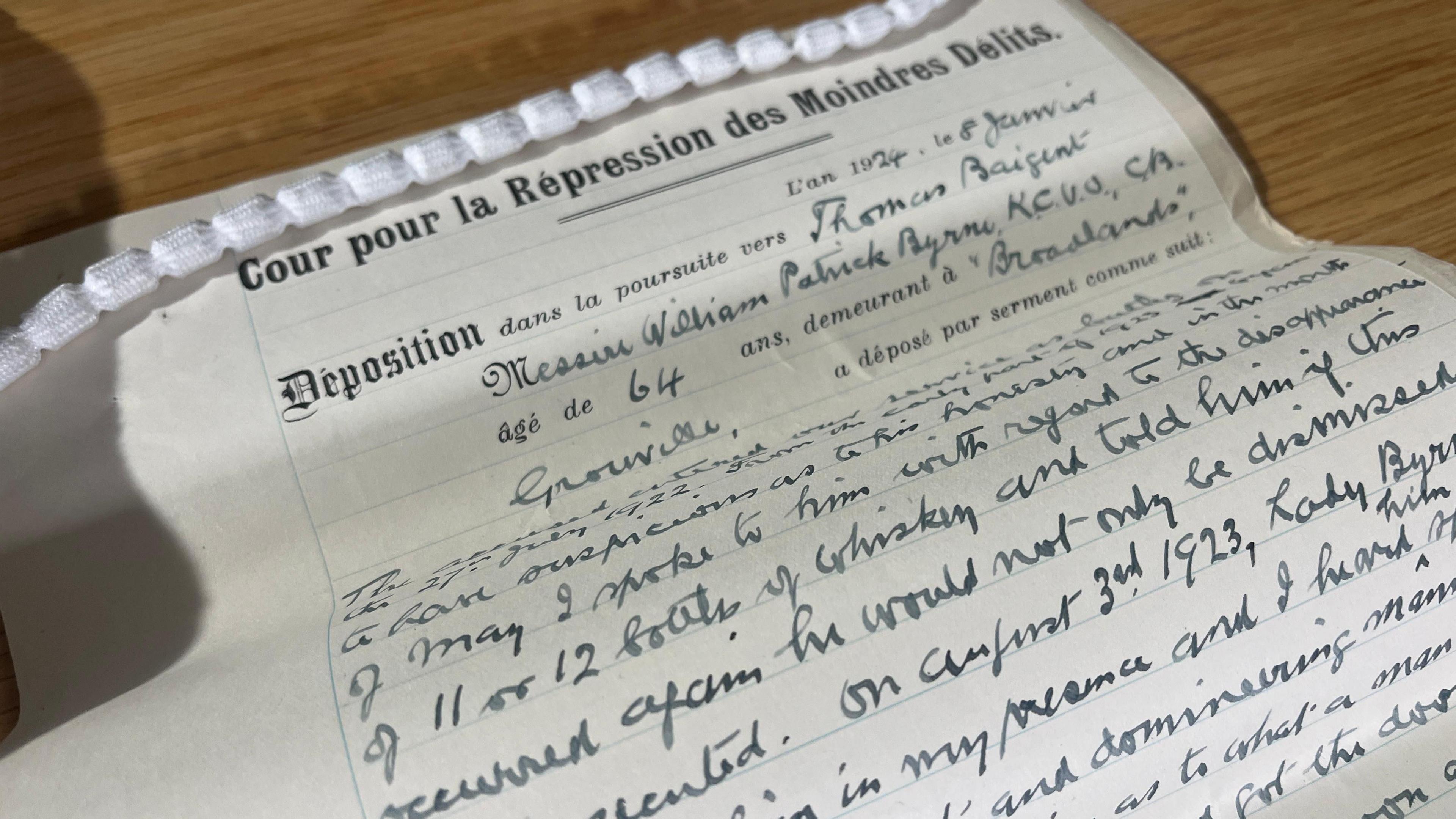
Image caption, A letter noting "court for the repression of minor crimes" in French
1 of 5
- Published
Archived records, some dated more than 100-years-old which detail island life during the years between the two world wars, have been released.
Jersey Heritage released the records that had been kept from the public eye under the Freedom of Information act.
Records released include criminals cases and punishments of the 1920s, admissions to the General Hospital and the "physical and social impact" of the Occupation in the late 1940s.
Linda Romeril, Jersey Heritage's director of archives & collections, said it was "always fascinating to see the changes in society that the records show".
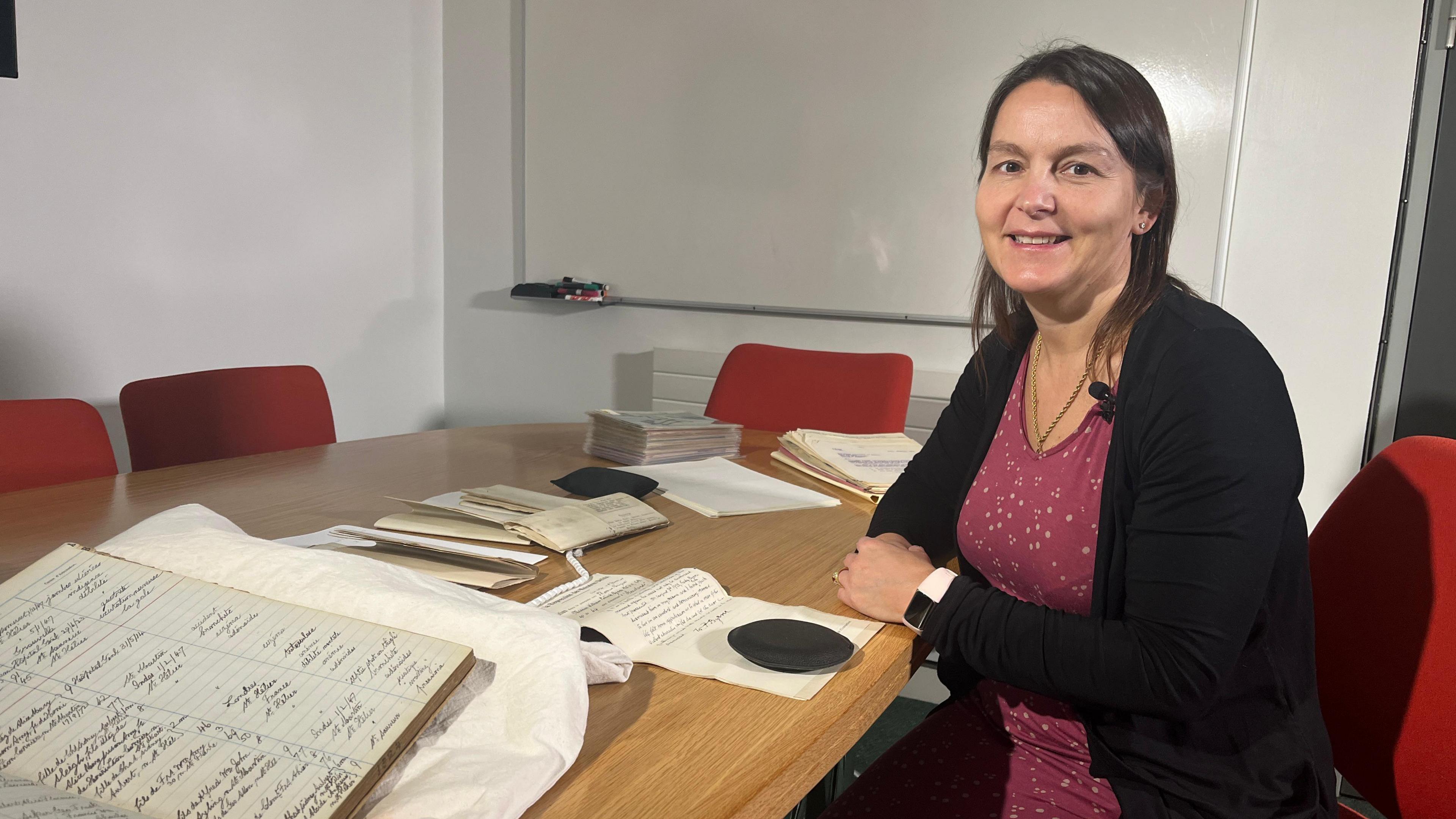
Linda Romeril said new records were released each year
She said: "They tell us about what was happening in the island at the time, they're also a fantastic mine of information for social history and how the world has changed in the last 100 years.
"One of the records we're looking at is an admission register for the General Hospital, it is from 1924 so it has been closed for 100 years because it contains people's private, sensitive information, but now it's open to the public - fantastic resource for family history."
- Image source, Jersey Heritage
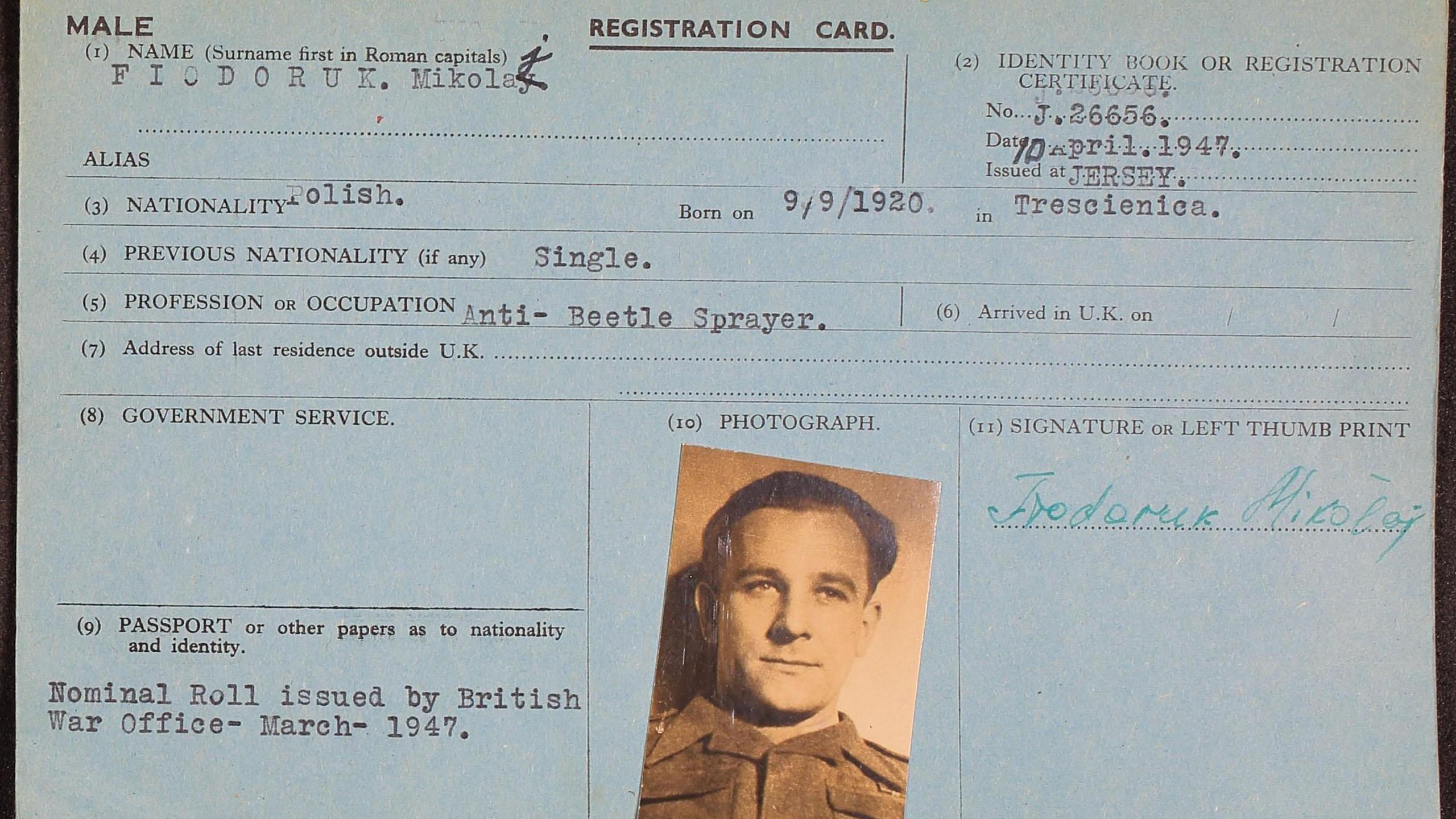
Image caption, The alien registration card of anti-beetle sprayer Mikolaj Fiodoruk
1 of 2
Records showed Polish people hoping to settle in Jersey faced resistance due to strict policies.
In 1947, Jersey considered employing members of the Polish Resettlement Corps (PRC) to assist with agricultural work - specifically combating the Colorado beetle.
The PRC was established by the British government for Polish soldiers who had served with the British Armed Forces but were unable to return home after World War Two.
Jersey resident Gladys Lea married PRC member Mikolaj Fiodoruk in 1948, but repeat requests for Mr Fiodoruk were initially denied.
Working under permits until 1953, Mr Fiodoruk was granted employment without restrictions and naturalised as a British subject in 1963.
Historical punishments
In 1924, a case involving five men aged 16 to 18 were accused of stealing zinc from Sir Jesse Boot's property and were sentenced to various punishments.
George Morcel, Edward Malzard and Francis Le Clair received three months of hard labour, which was later reduced, and were given 12 strokes of the birch - six upon entering and six when leaving prison.
Leon Veron had a "good character record" from his school teachers, so was spared jail but also received eight lashes, and Charles Samuel was sentenced to two weeks in jail with five lashes at both the start and end of his sentence.
Birching as a punishment was abolished in the UK in 1948 but it remained legal in Jersey until the late 1970s.
However, Jersey later became the first British territory to outlaw corporal punishment for children.
Follow BBC Jersey on X, external and Facebook, external. Send your story ideas to channel.islands@bbc.co.uk, external.
- Published18 May 2024
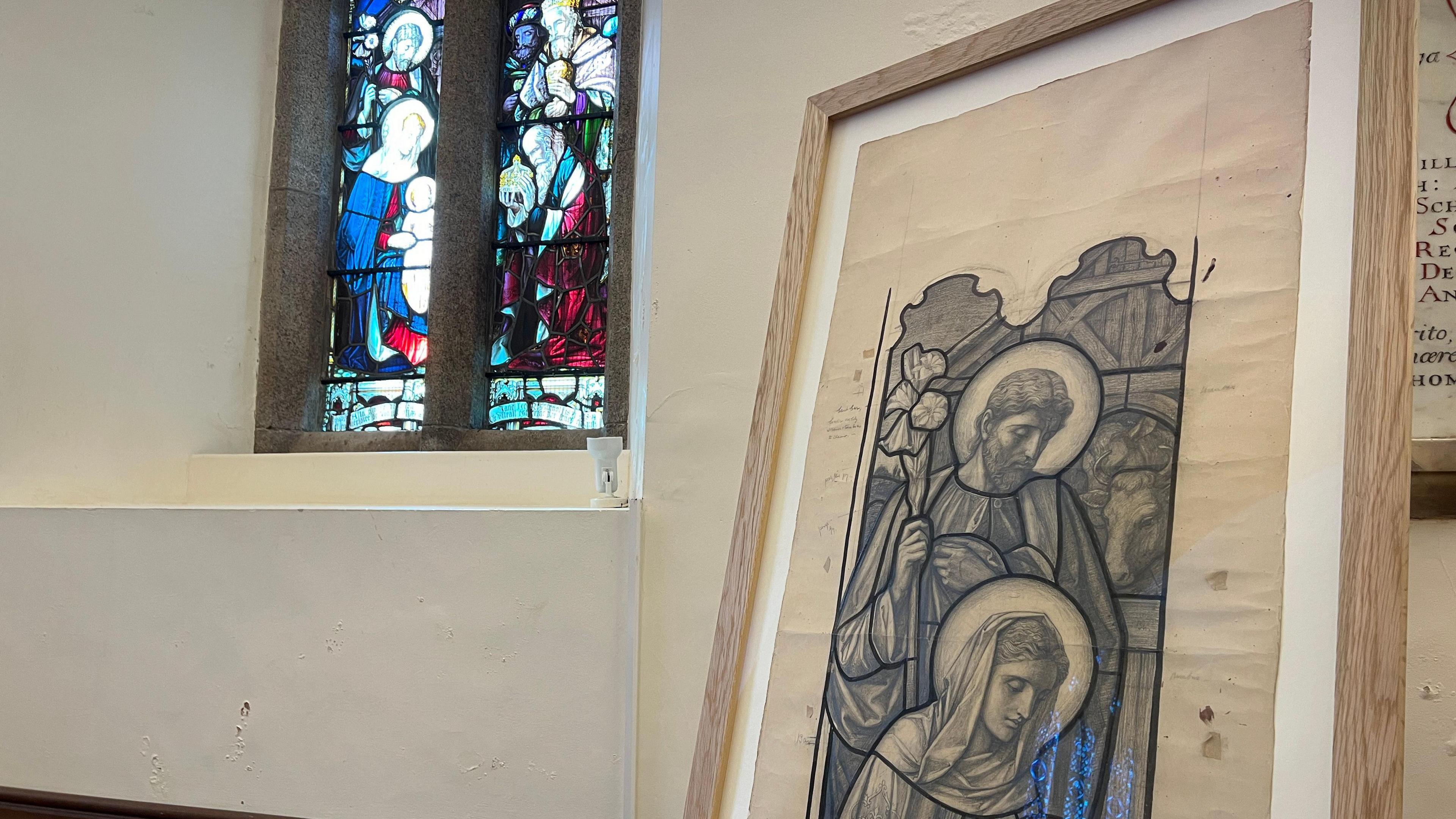
- Published5 January 2023
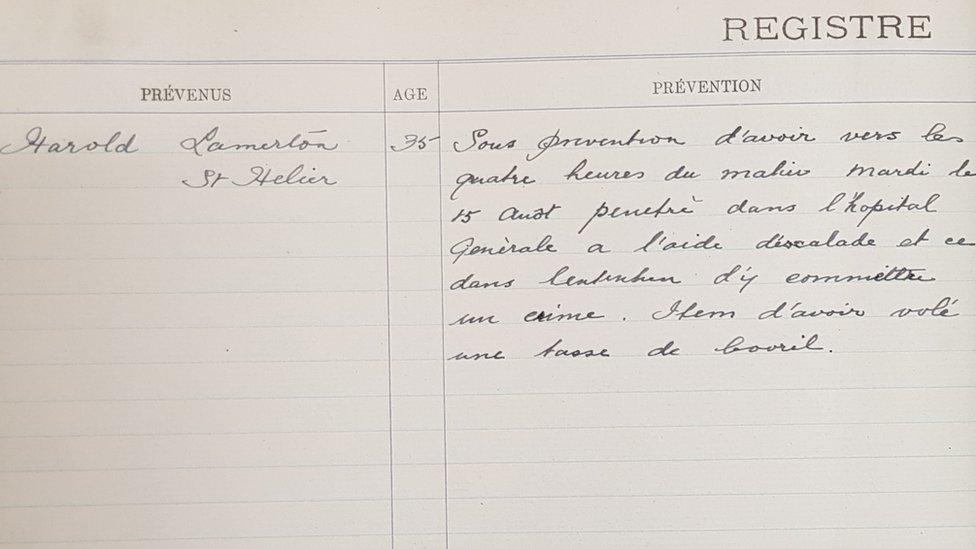
- Published18 January 2022
